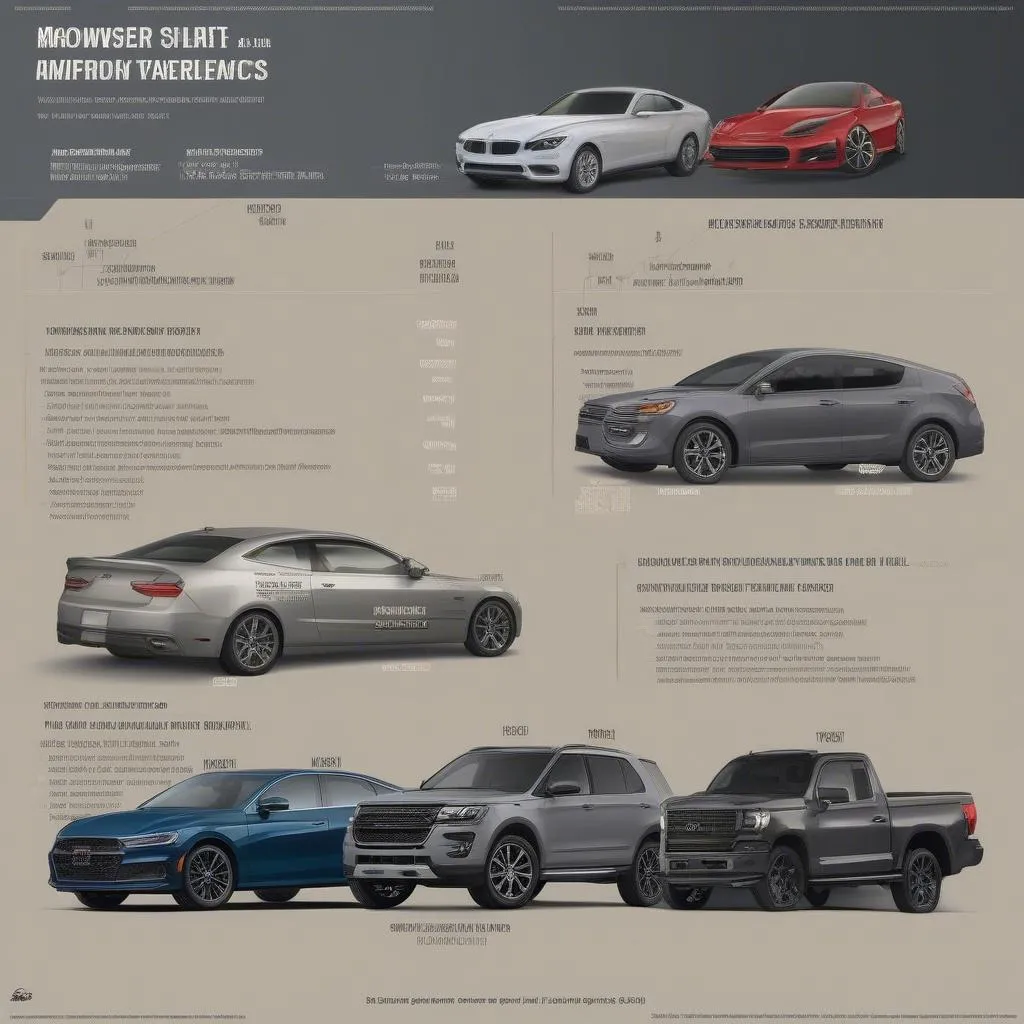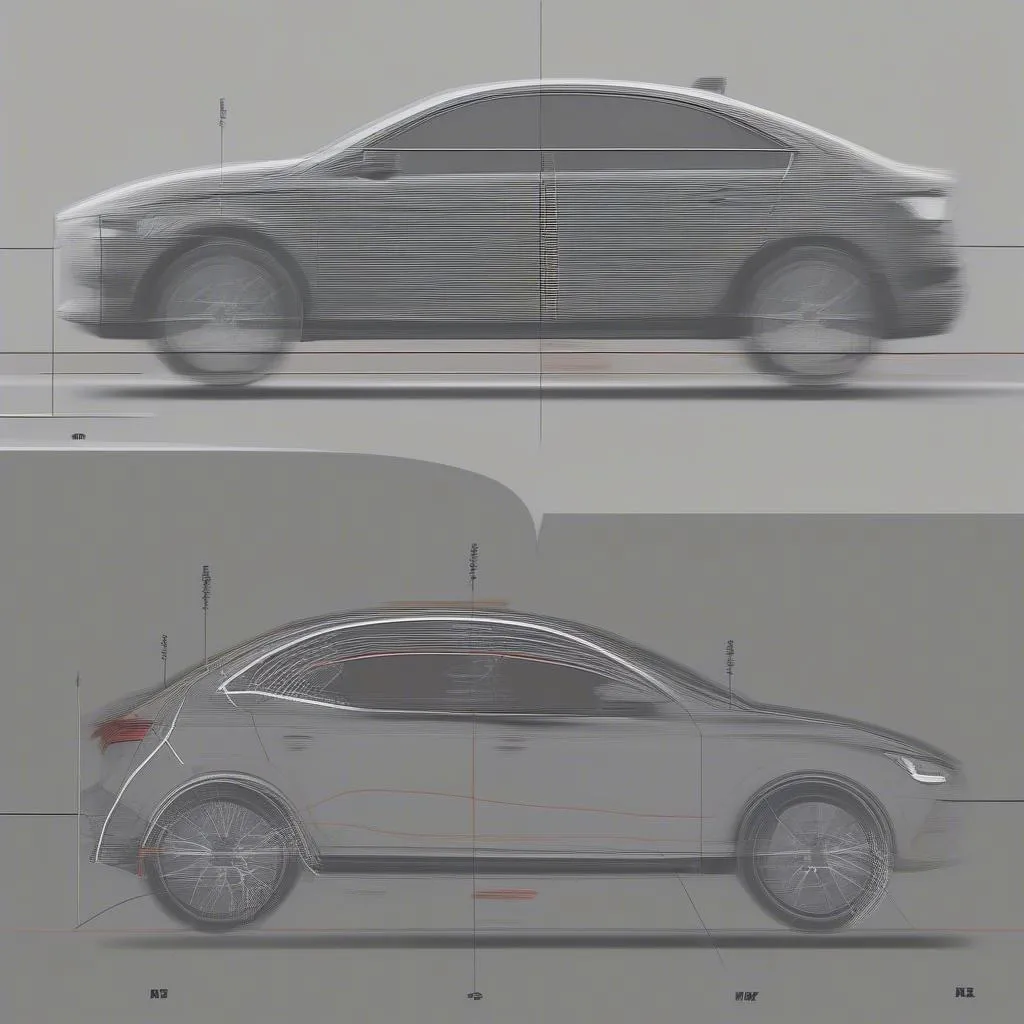Imagine walking into a car dealership, ready to buy your dream car. You know you want something sporty, maybe a sleek coupe with a powerful engine. But when the salesperson starts talking about horsepower, torque, and fuel efficiency, your eyes glaze over. What do all these numbers mean, and how do they affect your driving experience?
The Importance of Car Specs
Car specs are more than just a list of technical details – they represent the heart and soul of a vehicle. They tell you how it performs, how it handles, and how it consumes fuel. Understanding these specifications helps you make informed decisions about your next car purchase.
From a Car Mechanic’s Perspective
As an automotive technician, I see the vital role car specs play in diagnosing and repairing vehicles. These details help us understand the vehicle’s design, identify potential issues, and choose the right parts for maintenance or repair.
From a Technical Perspective
Car specs offer a detailed blueprint of the vehicle’s capabilities and limitations. They highlight key features like engine size, transmission type, and suspension setup, which ultimately determine the car’s performance, handling, and overall driving experience.
For instance, take a look at this  Comparison of Engine Specifications for Popular Car Models.
Comparison of Engine Specifications for Popular Car Models.
From an Economic Perspective
Car specs also influence the cost of ownership. Fuel efficiency is a crucial factor in determining how much you’ll spend on gas. Maintenance costs can also vary based on engine size and other components.
Understanding Key Car Specs
Engine Specs
- Engine Displacement: Measured in liters (L) or cubic centimeters (cc), engine displacement refers to the total volume of air the engine can displace in one complete cycle. A larger displacement typically means more power but also higher fuel consumption.
- Horsepower (hp): A measure of the engine’s power output, horsepower determines how quickly the car accelerates.
- Torque: Measured in Newton-meters (Nm) or pound-feet (lb-ft), torque represents the engine’s twisting force. Higher torque results in better acceleration from a standstill and more power at lower engine speeds.
- Fuel Efficiency: Measured in miles per gallon (mpg) or liters per 100 kilometers (l/100 km), fuel efficiency reflects how much fuel the car uses to travel a certain distance.
Transmission Specs
- Automatic Transmission: Offers smooth and effortless shifting, providing a comfortable driving experience.
- Manual Transmission: Offers more control over the car’s acceleration and provides a more engaging driving experience.
Suspension Specs
- MacPherson Strut: A common type of front suspension system offering a balance of ride comfort and handling.
- Independent Rear Suspension: Allows each wheel to move independently, enhancing handling and ride comfort, particularly on uneven surfaces.
Here’s a visual representation of how different suspension systems impact a car’s handling:  Comparison of Car Suspension Systems
Comparison of Car Suspension Systems
Other Important Specs
- Weight: The total weight of the vehicle, including the car itself and its occupants. A heavier car typically requires more power to accelerate.
- Braking System: The efficiency and responsiveness of the car’s braking system are crucial for safe driving.
- Safety Features: Modern cars come equipped with a variety of safety features, such as airbags, anti-lock brakes (ABS), and electronic stability control (ESC), which enhance driver and passenger safety.
Finding Car Specs
You can find detailed car specs on various sources, including:
- Manufacturer Websites: Most car manufacturers provide comprehensive spec sheets for their vehicles.
- Automotive Websites: Online resources like [link to DiagXCar article] and [link to DiagXCar article] offer detailed spec comparisons for various car models.
Car Specs and Diagnostics
Understanding car specs is crucial for any auto technician, and [link to DiagXCar article] offers a comprehensive guide on using dealer scanners for European cars. This tool helps diagnose and repair complex vehicle systems, providing insights into the car’s overall health.
Conclusion
Car specs are a crucial aspect of understanding and appreciating your vehicle. By taking the time to understand them, you can make informed decisions about your car purchase, ensure proper maintenance, and ultimately enjoy the best possible driving experience.
For any additional assistance or questions regarding car specs or automotive diagnostics, don’t hesitate to reach out to us via WhatsApp: +84767531508. Our team of automotive experts is available 24/7 to assist you.


